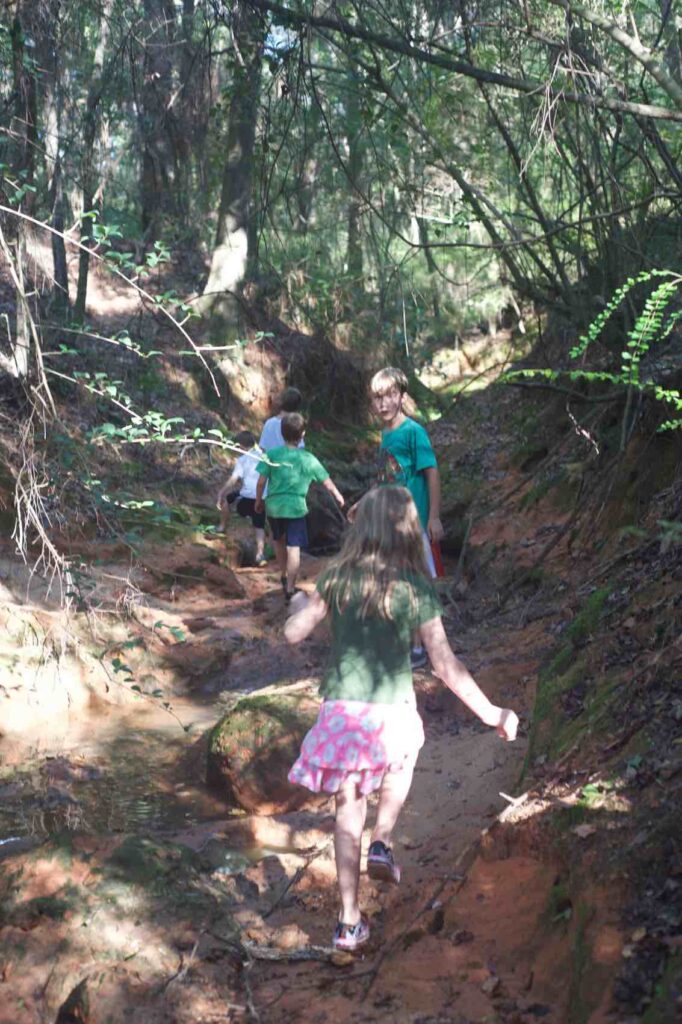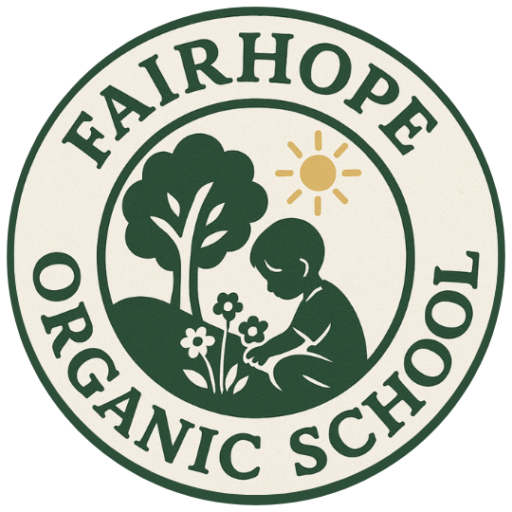What is Organic Education?
The Organic Dream for Every Child: A sound, accomplished body, a sympathetic, intelligent mind, and a sweet, sincere spirit.
“Education is life, not merely a preparation for it.”

What is Organic Education?
Organic Education is a simple concept that embodies principles rarely executed in today’s educational systems. Born from the Progressive Education movement at the end of the 19th Century, this theory asserts that children are not “miniature, flawed adults,” but individuals with a natural, innate desire to learn.
Our job is not to “mold” the child, but to facilitate the unique stage of growth they are currently experiencing.
Born to Learn.
At the core of Organic Education is the belief that children want to learn. When we remove the tradition of the “all-knowing adult” and the “passive child,” we create space for a child-centered environment.
- A Natural Setting: We present academic subjects without the pressure of a regimented schedule.
- Individual Pace: Students proceed at a pace that is comfortable and personal, ensuring they grasp what they need to know without being forced to conform to artificial timelines.
- The Teacher’s Role: Our educators are charged with being aware of each stage of a child’s development, acting as guides rather than taskmasters.
From the Concrete to the Abstract
We respect the natural order of growth by following the path from the concrete to the abstract. Before a child can master abstract concepts, they must:
Do and Try: Hands-on experience is the foundation of knowledge.
Internal Readiness: Without the pressure of external testing, a child naturally develops the mental maturity to move from physical “doing” to abstract thinking at their own comfortable pace.

Use the Senses: A child must experience the world through their own senses to truly understand it.
Challenge Assumptions: It is natural for a student to question and challenge in order to absorb new information.
A Sanctuary from External Pressure
To protect the “inner life” of the student, Organic Education removes the external pressures that often stifle the desire to learn:
The Outcome: The Whole Child
The ultimate goal of Organic Education is to foster independent thinkers who are emotionally secure and intellectually curious. By treating education as a lifelong endeavor rather than a finite race, we cultivate individuals who possess the wisdom that comes from self-knowledge and the spirit of cooperation. Within our group framework, students retain their unique talents and individuality, emerging as self-disciplined young adults who are comfortable challenging assumptions and eager to absorb new information in an ever-changing world.
Pre-K & Kindergarten
Early Life
Traditionally known as preschool and Kindergarten, we use the name Early Life to denote the development of the younger years. These years are foundational and incredibly important in how the child’s brain and emotional intelligence develops.
1st & 2nd grade
First Life
Our First Life classes are composed of 1st and 2nd grade aged children. When children are in combined age classrooms, the learning expounds and more is gained in emotional and social development.
3rd & 4th grade
Second Life
As our brains develop we transition from concrete thinking to more abstract concepts, usually between ages 8 and 9, when students typically enter 3rd and 4th grade.
5th – 8th grades
Third & Fourth Life
Third Life is generally ages 10 and 11, and Fourth Life typically falls with ages 12 and 13. Both these tracks offers deeper learning and immersive experiences at a pace that prepares students for the challenges in middle school and beyond.
